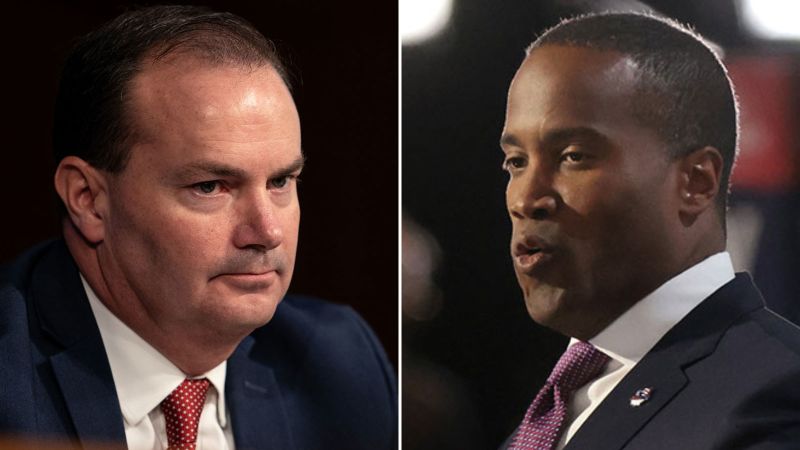In a bold move reflecting growing concerns over online safety, two Republican lawmakers are poised to introduce a groundbreaking piece of legislation called the App Store Accountability Act. This proposed law seeks to require app stores to verify the ages of their users and share this information with app developers, thus drawing from a precedent set by a similar law enacted in Utah earlier this year. With the implications of such a legislative measure being far-reaching, this initiative could mark the first significant federal regulation concerning online safety in many years. Should the App Store Accountability Act be passed, it would take effect one year post-enactment.
As articulated by Senator Mike Lee of Utah and Representative John James of Michigan—who are set to introduce this bill—it aims to facilitate safer online experiences for younger individuals. The requirement for app store operators, particularly those with a user base exceeding five million, to verify the ages of users at the time they create an account could ostensibly create a more secure digital environment. However, both app store operators and privacy advocates have raised concerns about the feasibility of this approach, particularly regarding how to verify the ages of young users without reliance on government-issued identification.
Under the proposed Act, app stores like those managed by tech giants such as Apple and Google would also be mandated to categorize users’ age groups, identifying “young child” as under 13, “child” as 13 to 15, “teenager” as 16 to 17, and “adult” as 18 and over. Importantly, while this categorization would provide app developers with valuable insights, it would be imperative to ensure that users’ personal information remains confidential. Additionally, parental consent would be an essential prerequisite for minors wishing to download applications or make purchases within them.
Senator Lee emphasized the precautionary nature of the legislation, noting its objective is to shield children from apps that expose them to potentially harmful content, including violent or sexual materials, as well as online predators. In his statement, Lee asserted that the proposed legislation aims to “bring age verification and accountability to the source of the problem,” a clear acknowledgment of the responsibilities that come with digital engagement.
The urgency surrounding this legislation arises from mounting pressure on both lawmakers and technology firms to enhance online protections, especially for younger audiences. The passage of this Act would be a significant victory for major social media platforms like Meta, Snap, and X, which have previously backed the initiative to turn app stores into centralized hubs for age verification, alleviating individual platforms from the onus of age checks.
Meta, Snap, and X articulated a joint position stating that parents seek a comprehensive solution that allows them to validate their child’s age and grant permission for app downloads, all while respecting privacy. They contend that the app store represents the optimal venue for such an age verification mechanism.
Conversely, both Apple and Google have expressed skepticism regarding the age verification mandate. They highlight that the onus should not solely rest on app stores and argue for a shared responsibility between app developers and app stores regarding age verification. Concerns over the privacy implications of collecting sensitive age-related information have led to calls for such data to be restricted to only those platforms that require it.
Despite these objections, it remains crucial to note that both Apple and Google already implement measures to prevent objectionable content from infiltrating their app stores. However, many wary parents still express concerns regarding prominent social media applications like Instagram and Snapchat, despite these companies ramping up youth safety initiatives in recent years.
Concerns surrounding the proposed age verification method have also been voiced by legal and privacy specialists. Some assert that while the legislation aims to streamline age verification across platforms, it inevitably necessitates individuals to surrender personal data, typically in the form of government IDs or biometric scans. This could potentially mean that all users, regardless of their intended app usage, would be required to provide personal information, raising significant privacy ramifications.
The tech industry advocacy group, Chamber of Progress, has also cautioned that the proposed legislation could conflict with First Amendment rights, forcing adults into a scenario where they must choose between divulging personal information or sacrificing access to what is considered legally protected speech online.
However, lawmakers Lee and James maintain that this legislation stands to offer essential support to parents and caregivers, who are increasingly expected to monitor their children’s social media activity. James succinctly stated that companies exposing children to inappropriate or addictive content should be held accountable, affirming that this Act could elevate the standards Big Tech must adhere to, comparable to those upheld by local businesses.



